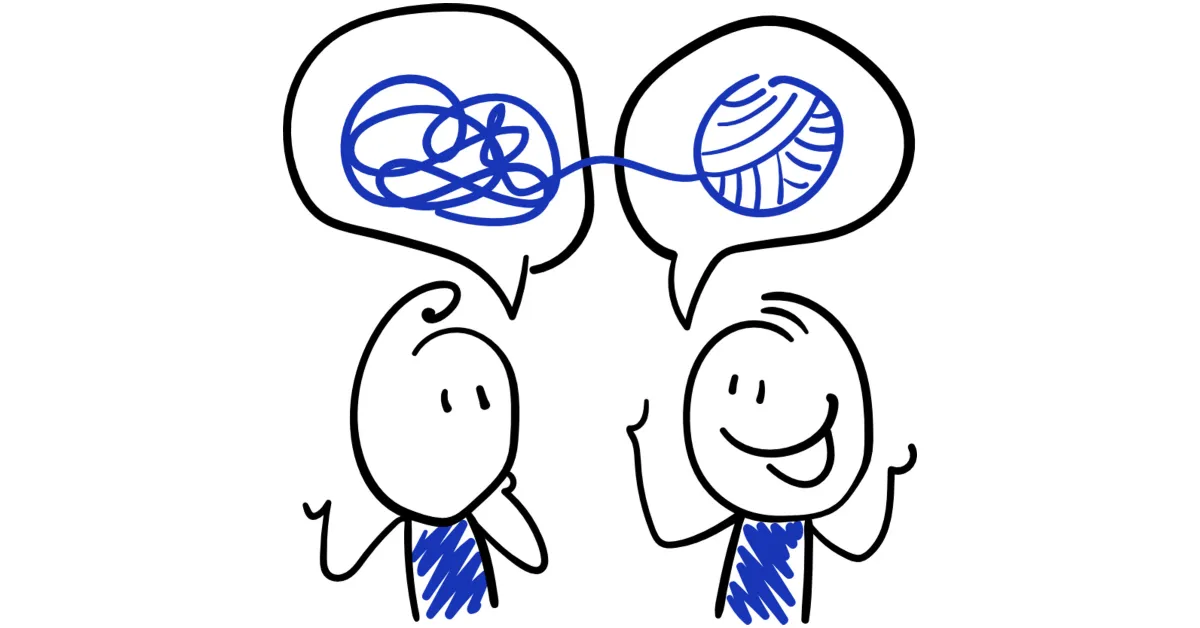What Is Autism Coaching?
Autism coaching is a specialised form of autism advocacy that focuses on helping parents and caregivers understand how to help their child with autism.
An autism life coach is someone who helps families understand what their child is experiencing and provides strategies to improve his/her behaviour and communication skills. They work closely with families and people with autism to identify strengths, weaknesses and abilities. Once the coach has a good understanding of the person, they facilitate conversations to uncover opportunities for new strategies.
Coaching is not just about helping parents manage their child's behaviour. Rather, it involves helping them become aware of their own emotions and thoughts, and understanding how these affect their interactions with their child. Parents should be aware of their own behaviour and recognise when they are being too controlling or critical of their child. They should avoid actions that could worsen the situation.
The term "coach" implies that you are being guided toward success. But in reality, there is no magic formula for how to become a better parent. There is no one way to raise a successful child. Every family faces unique challenges and circumstances. However, being able to collaborate and bounce ideas off a parent that's been there is valuable.
Many parents struggle with school-related issues and find it difficult to prepare for meetings or advocate for their child. Parents may even find themselves feeling overwhelmed by the sheer number of decisions they must make each day. This is where autism coaching can help.
There is a growing number of parents that are like we were at the start of our autism story. They have a burning knowing that something is missing with the standard autism support pathway. There are too many assumptions and the approach is very narrow. Having a coach to navigate the big wide world of autism with you can be very helpful.
Why Parents Should Consider An Autism Coach?
Parents play a critical role in helping their child succeed. But sometimes, parents don't know where to start. That's where an autism coach comes in.
An autism coach can help parents gain insight into their child's unique personality and interests, and tailor activities accordingly. He/she can also help parents learn how to interact with their child in a way that encourages him/her to participate in daily routines.
Additionally, an autism coach can help parents understand their own feelings and reactions to their child's behaviour, and use that knowledge to effectively parent. Finally, an autism coach can serve as a resource for parents seeking additional educational options for their child.
By working together, parents and coaches can create a plan that addresses each family member's specific needs. A good coach will ask questions to get to the root cause of problems and then offer solutions based on the individual situation. He/she will also encourage parents to take responsibility for their child's success and give praise when he/she does something right.
A coach can also help parents set goals for their child's future and monitor progress toward achieving those goals. Additionally, a coach can help parents build relationships with other caregivers and educators, including doctors, teachers, counsellors, and therapists.
One important aspect of being an autism parent is awareness. Being able to notice triggers or patterns that result in a particular behaviour or response. Too often we are encouraged to think that if a behaviour is "bad", we should train them out of it via imposing consequences. A better approach is to develop your awareness as a parent, so that you know the cause of the behaviour. A child doesn't act "bad" because they are naughty. There is always a reason. Coaches can help parents develop their awareness and know what to look for. It's amazing how much talking to someone that asks questions to help you uncover new insights can help.
Doctors, psychologists and other health professionals working with autism spectrum disorder are in high demand. They don't have the time or training to support your whole family and all the challenges that come with autism. A coach that has walked a similar path to what you're facing can provide benefits that support and extend beyond the standard pathway.
Is Autism Coaching A Good Fit For You?
If your child is newly diagnosed with autism, you may be a good fit for an autism coach. You might feel like there is no one else out there who understands what you are going through. Or maybe you've been struggling with some of the same issues for years. Either way, it's important to know that you aren't alone.
If you can benefit from the attributes of an autism coach as described above, it's worth looking at getting an autism coach. It's important to find the right coach that can help you with the areas that you want help with. Every person and family is different, so there won't be one coach for everyone.
If you feel overwhelmed by too much information and choices, and don't know how to move forward, consider hiring a coach to guide you. In our experience, we would have saved a lot of money on choices we made that didn't help, if we had better support.
As a parent of an autistic child, you'll probably forget to take care of yourself sometimes. And since most of us don't talk much about our feelings, we tend to isolate ourselves. Parents of children with autism often find themselves struggling with social isolation as they try to cope with the challenges of raising a child with autistic traits. Your social life will likely change with your new challenges. So being able to talk to someone who knows exactly how you feel can really help.
What You Can Expect From An Autism Coach?
A good coach will be able to listen to parents with the desire to understand their needs and perspectives. They will be flexible and adaptable to changing situations and new information.
Coaching sessions will aim to support parents through challenges and frustrations. They will be non-judgemental. They will be a person that you can feel comfortable being open and honest and will have your back when needed. They will advocate for you and your whole family, while being supportive and encouraging.
Coaches will offer ideas and suggestions to parents, but not pressure them to do anything that they are not comfortable doing. They'll comprehend your situation thoroughly and suggest options you may have overlooked.
An Autism Coach should give families practical tips on how to cope with everyday situations. This includes helping parents learn how to set boundaries, manage stress, deal with meltdowns, and communicate effectively. Parents may fall into the trap of focussing too much on autism, which can affect the wellbeing of their other children and themselves. A coach can help you develop a more balanced life, which is incredibly important.
An Autism life Coach can help families find the best therapies for their child and introduce them to new ideas they may not know about. They will also help parents find resources, such as books, websites, online communities and local services.
Overall, you can expect to improve your quality of life. Even possibly more so than the life you had before autism. Although living with autism can be difficult, having the right support can make a big difference. You can benefit from the experience and overcome the challenges with the right help.
Frequently Asked Questions
What exactly does an autism coach do, and how could they help my child with ASD?
An autism coach is a professional who works closely with children with Autism Spectrum Disorder (ASD) and their families to support development, communication, and daily living skills. They typically tailor strategies to your child's unique needs, helping them improve social skills, manage challenging behaviors, and build independence. The coach may work one-on-one with your child, provide guidance to parents or caregivers, and suggest effective routines or activities. Essentially, they serve as a bridge to help your child thrive and to empower families with practical tools and ongoing support.
How do I know if my child would benefit from an autism coach?
If your child with ASD is facing difficulties with social interactions, communication, or daily routines, or if you're feeling overwhelmed with strategies and support, an autism coach could be a helpful resource. They are especially useful if your child’s needs are complex or if you're seeking personalized guidance beyond what typical therapies offer. Consulting with your child's therapy team or pediatrician can also help determine if coaching would fill specific gaps in your child's development or your family's support system.
Are autism coaches suitable for children of all ages or only for younger kids?
Autism coaching can be beneficial for children of various ages, from early childhood through adolescence. The focus and strategies may differ depending on your child's age and developmental stage. For young children, coaching might focus on foundational skills like communication and social play, whereas for teenagers, it might center on independence and social integration. It's best to discuss your child’s age and specific goals with a coach to see if their approach aligns with your child's needs.
What should I look for when choosing an autism coach for my child?
When selecting an autism coach, consider the following:
- Qualifications and Experience: Look for certified professionals with experience working with children with ASD.
- Approach and Philosophy: Ensure their methods align with your values and your child's needs.
- Reviews and Recommendations: Seek testimonials or suggestions from other parents or professionals.
- Compatibility: Schedule an initial meeting to see if your child and the coach establish a good rapport.
- Practical Considerations: Check if they offer in-home coaching, virtual sessions, or a mix, and consider logistics like cost and availability.
Is working with an autism coach worth the investment for my family?
The decision to invest in an autism coach depends on your child's specific needs and your family's goals. Many families find that coaching provides valuable tailored strategies, boosts their child's skills, and reduces daily stress. It can also complement other therapies your child may be receiving. Consider the potential benefits against the cost and time commitment, and discuss with your child's care team. Remember, every child and family is different—what matters most is finding the support that helps your child succeed and your family thrive.
















